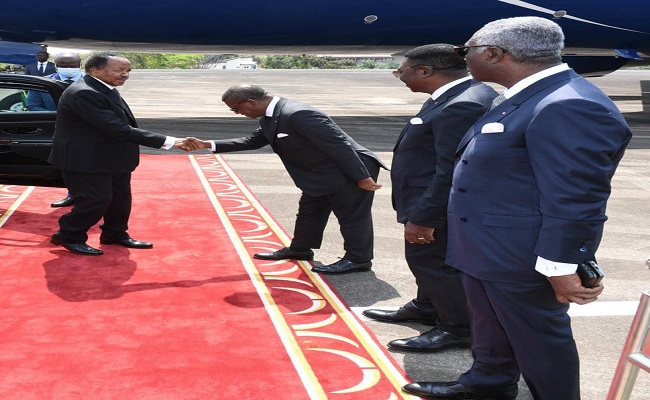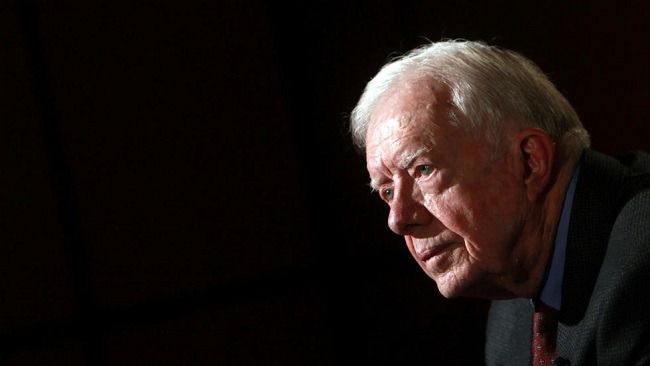2, January 2025
Biya hints at another bid for presidency 0
President Paul Biya gave his end of year address to the nation, and a not so subtle hint that he still has interest in keeping the presidency.
Biya warned that 2025 – the year Cameroon is meant to hold presidential elections is ‘full of challenges’, which was interpreted by some observers as a suggestion that he sees himself as president of the central African country beyond 2025.
Biya said he was paying attention to the cries of his party’s members who have recently embarked on a propaganda drive to market his candidacy.
At almost 92 years old, 40 of which he has spent at the head of his country, Paul Biya remains the sole candidate of the ruling Cameroon Peoples Democratic Movement according to the party’s constitution.
Source: Africa News




























2, January 2025
South Korea’s Yoon vows to ‘fight until end’ despite facing arrest 0
South Korea’s impeached president Yoon Suk Yeol has written a letter urging his supporters to stand by him, declaring that he will “fight until the end”, as authorities seek to arrest him over his brief martial law imposed last month.
Back on December 3, heavily armed troops stormed the National Assembly building after Yoon ordered a martial law to be imposed, the first of its kind in more than four decades, but lawmakers managed to rush to the parliament to vote down his martial law declaration.
He gave the military extraordinary powers in order to end the political deadlock within the capital, and stop what he dubbed “anti-state forces.” However, the martial law lasted only six hours before being revoked by the parliament.
After being impeached by lawmakers and having his powers suspended, Yoon was replaced by Prime Minister Han Duck-soo, who briefly led the country as acting president.
“I am watching on YouTube live all the hard work you are doing,” Yoon addressed a letter late Wednesday to the estimated hundreds of supporters gathered near his official residence in protest of his investigation.
“I will fight until the end to protect this country together with you,” he added in the letter, a photo capture of which was sent to Reuters by Seok Dong-hyeon, a lawyer advising Yoon.
The opposition Democratic Party, which holds a majority in the parliament and spearheaded Yoon’s impeachment on December 14, stressed that the letter demonstrated Yoon’s purported delusion and his continued commitment to carry out what they call his “insurrection.”
“As if trying to stage insurrection wasn’t enough, he is now inciting his supporters to an extreme clash,” said party spokesman Jo Seoung-lae in a statement.
On Tuesday, a court issued an arrest warrant for Yoon, potentially making him the first sitting president to be detained in connection with investigations into accusations that he orchestrated an insurrection by attempting to impose martial law.
Insurrection is one of the rare criminal charges for which a South Korean president does not enjoy immunity.
The Corruption Investigation Office for High-ranking Officials (CIO), heading a joint investigative team that includes police and prosecutors, has until January 6 to carry out the arrest warrant.
South Korean lawmakers impeached Han for his refusal on December 27 to appoint three judges to fill vacancies in the Constitutional Court, the body that will be deciding whether to reinstate or remove Yoon permanently from office.
Now, Deputy Prime Minister Choi Sang-mok has assumed the role of acting president.
The opposition argued that Han had actively participated in Yoon’s insurrection and violated his duty to uphold the law by avoiding investigations.
Opposition politicians also called for launching a special probe into Yoon’s martial law declaration.
On Thursday, Yoon’s lawyer warned that police officers would be at risk of arrest by “the presidential security service or any citizens” if they attempt to detain Yoon on behalf of the CIO, stressing that their authority is restricted only to crowd control and maintaining public order.
Source: Press TV